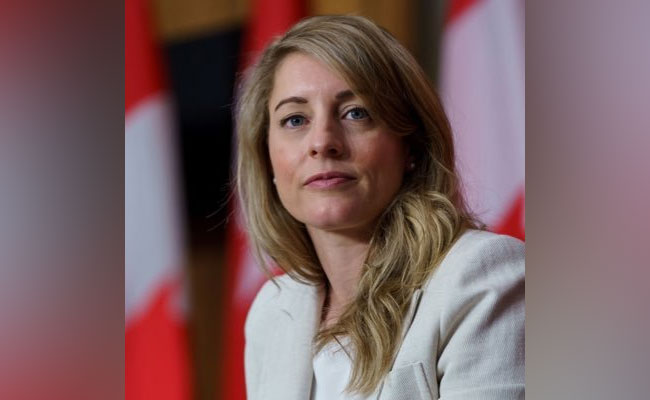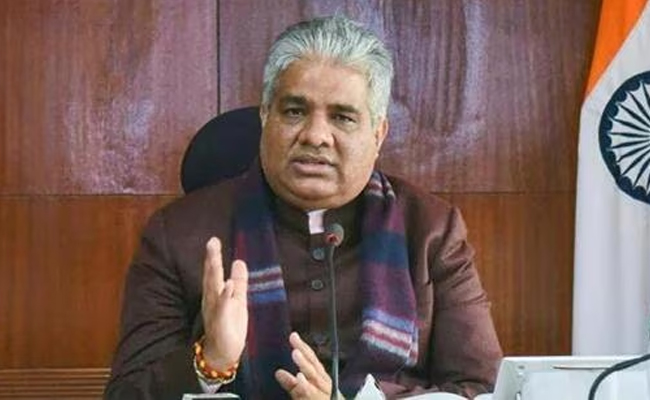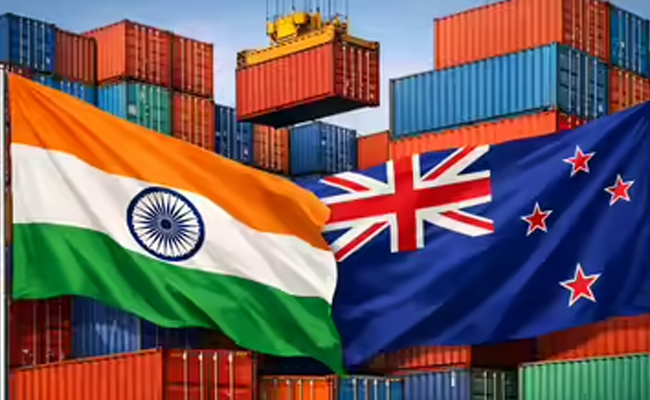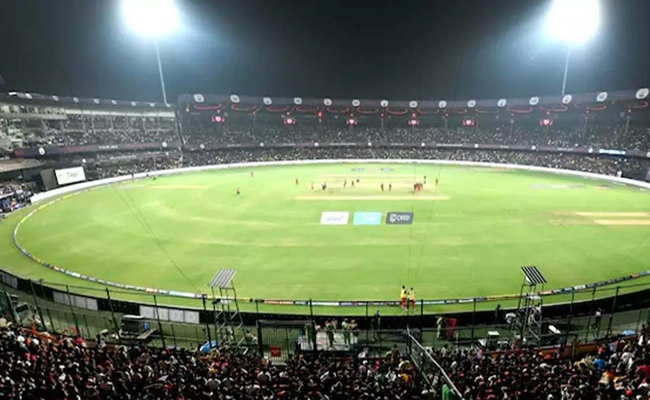Toronto (PTI): Canada has withdrawn 41 diplomats and their family members from India after it threatened to strip them of their diplomatic immunity, Foreign Affairs Minister Melanie Joly has said, amid a diplomatic row over the killing of a Sikh separatist.
Tensions flared between India and Canada last month following Prime Minister Justin Trudeau's explosive allegations of the "potential" involvement of Indian agents in the killing of Khalistani extremist Hardeep Singh Nijjar on June 18 in British Columbia. India had designated Nijjar as a terrorist in 2020.
India angrily rejected the allegations as "absurd" and "motivated".
"I can confirm that India has formally conveyed its plan to unilaterally remove diplomatic immunities for all but 21 Canadian diplomats and dependents in Delhi by tomorrow, October 20," Joly said on Thursday.
Canada will be pausing all in-person services at the consulates in Chandigarh, Mumbai and Bengaluru and is now directing all Canadians in India to the High Commission in New Delhi.
Joly said that in their "unreasonable" request for diplomatic parity, India would only allow 21 diplomats and their families to maintain their diplomatic status, putting the others at risk of having their protections stripped arbitrarily, leaving them vulnerable to reprisal or arrest.
"This means 41 Canadian diplomats and their 42 dependents were in danger of having immunity stripped on an arbitrary date, and this would put their personal safety at risk," she said at a news conference in Ottawa.
"The safety of Canadians and of our diplomats is always my top concern. Given the implications of India's actions on the safety of our diplomats, we have facilitated their safe departure from India," Joly said. "This means that our diplomats and their families have now left."
Last month, India asked Canada to downsize its diplomatic staff in the country, arguing that there should be parity in strength and rank equivalence in the mutual diplomatic presence. The size of Canadian diplomatic staff in India is larger than what New Delhi has in Canada.
Calling India's action "contrary to international law," and in violation of the Vienna Convention on Diplomatic Relations, Joly accused India of escalating the bilateral tensions, but Canada will not be reciprocating.
"There is a fundamental principle of diplomacy, and this is a two-way street. It only works if every country abides by the rules," she said.
"A unilateral revocation of diplomatic privileges and immunities is contrary to international law," Joly said. "Threatening to do so is unreasonable and escalatory. If we allow the norm of diplomatic immunity to be broken, no diplomats anywhere would be safe."
"So for this reason, we will not reciprocate," she added.
"Let me be clear, Canada will continue to defend international law, which applies to all nations and will continue to engage with India. Now more than ever, we need diplomats on the ground, and we need to talk to one another," Joly said.
Joly announced the development "on the situation with India" alongside Immigration, Refugees and Citizenship Minister Marc Miller, who announced the shrinking of Canada's footprint to one-third of what it was, will impact the level of service delivery Canada will be able to provide in India.
"Remaining staff will continue to focus on the work that can't be moved out of the country, such as urgent cases, visa printing, and working with visa application centres," Miller said, noting that Canada's 10 visa application centres are operated by third-party contractors and will not be impacted.
Those left are considered core staff, who will remain focused on the current challenging diplomatic situation, as well as trade and business files, according to officials who briefed reporters on a not-for-attribution basis on Thursday evening.
Commercial programming for businesses will continue, but at reduced capacity, and Canada continues to employ locally engaged staff.
Miller noted that in 2022, India was the top country for permanent residents, temporary foreign workers, and international students in Canada, and so the federal government recognises the impacts that will be felt.
"I want to reassure our clients in India and Canadians who have family and friends in India that Canada will continue to accept and process all temporary and permanent resident applications from India," he said, adding that it may just take longer.
The remarks by the ministers come after Prime Minister Trudeau was asked on Thursday for a status update on the Indian government giving Ottawa an October 10 deadline to significantly reduce its diplomatic footprint.
As CTV News reported at the time, Canada was asked to see dozens of diplomats depart, to put the contingent of officials in India on par with the number of Indian diplomats in Canada. Sources said then, that Canada had already evacuated a majority of the Canadian diplomats working in India outside of Delhi to Kuala Lumpur and Singapore.
Trudeau did not directly answer the question, saying instead that Joly would have more to say later.
"We have been continually engaged in diplomacy and in dialogue with the Indian government," Trudeau said. "This is a serious matter that we are taking extremely seriously."
Earlier, Trudeau had said that Canada shared with India "many weeks ago" evidence that it may have been behind the killing of Nijjar on Canadian soil and wants New Delhi to commit constructively with Ottawa to establish the facts in the "very serious matter." Trudeau, however, did not elaborate on the evidence that he says has been shared with India.
Pressed for more details on whether Canada has provided India evidence to back Canada's claims and how it reached its conclusions regarding the potential link to the extrajudicial killing, Joly in the past too was unspecific beyond stating the two countries had various meetings and information was shared, leading up to Trudeau's House of Commons declaration.
Joly also restated Trudeau's calls for India to cooperate in the ongoing probe, noting federal law enforcement agencies in Canada "are working actively."
India has asked Canada to come down hard on terrorists and anti-India elements operating from its soil and suspended visa services for Canadians.
External Affairs Minister S Jaishankar told journalists in Washington last month that the governments of India and Canada will have to talk to each other and see how they resolve their differences over the issue and underlined that but the larger issue of the Canadian government's "permissiveness" to terrorism, extremism and violence must be flagged and addressed.
Let the Truth be known. If you read VB and like VB, please be a VB Supporter and Help us deliver the Truth to one and all.
Thrissur (Kerala) (PTI): A man was arrested on Monday after a 14-year-old boy was killed when a car overturned during a stunt-driving incident at Chamakala Rajiv Road beach in Chentrappinni here, police said.
The arrested accused was identified as Shajeer alias Saddam (36), a native of Kurikkuzhi in Kaipamangalam.
According to police, the incident occurred around 6 pm on Sunday when the accused allegedly performed dangerous drifting manoeuvres with an open-top Gypsy vehicle at the beach, without following any safety norms.
The accused picked up three minors — Mohammed Sinan (14), Mohammed Shafeer (14) and Ameer (12) — who were playing at the beach, and made them sit at the rear of the vehicle before driving recklessly.
While performing the drifting stunt, the vehicle went out of control and overturned, trapping Sinan underneath.
He suffered severe head injuries and succumbed to the impact, police said.
Based on a complaint, Kaipamangalam police registered a case under Section 105 (culpable homicide) of the Bharatiya Nyaya Sanhita.
After completing the preliminary probe, police arrested Shajeer on Monday.
He was later produced before a court and remanded to judicial custody, police said.
The accused is involved in 11 criminal cases.





